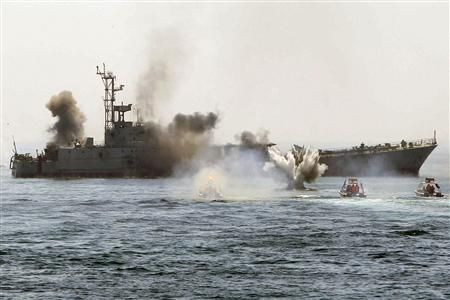US Gas Prices Soar on 'Fear Factor'; 'Sky is the Limit' if War Erupts

Supply-and-demand typically determines the price of a gallon of gasoline in the United States. But there's also the fear factor.
Currently, for example, the country has plenty of supply and only light demand, yet gas prices are steadily moving higher. Some predict the rise has only begun, suggesting that $5-a-gallon gas by the end of 2012 isn't out of the question. That's odd, considering that Americans, although still addicted to oil, have lightened the load of their dependence.
Cars Americans are driving are more efficient than ever. And while the recession delivered considerable pain throughout the 50 states, it also taught many households they didn't have to burn gas like they go through bags of potato chips. OPEC is also producing more oil at the moment than is required to keep up with demand, creating an oversupply in a light demand cycle that ordinarily would keep prices depressed.
Meanwhile, the national average price per gallon of gas jumped to $3.51 last week.
The finger, of course, can be pointed in only one direction: Iran.
It's the fear factor.
As tensions with Iran rise amid the country's expanding nuclear activities despite enhanced Western sanctions, the concern is that a war might erupt, severely crimping global oil supply.
The market right now is fairly well supplied, John Kingston, director of oil at the analytics firm Platts, told CNN. You've just got a significant fear factor that things could get worse.
It certainly appears that way. When Iran, the world's fifth-largest oil exporter, has talked in recent months of closing the Strait of Hormuz, a vital passage for oil tankers, many educated observers called the verbiage bluster. Yet even if Iran didn't aggressively close it, the Strait could be disrupted by an Israeli attack to stop Iran from developing nuclear weapons.
Earlier this month U.S. Defense Secretary Leon Panetta reportedly suggested a strong likelihood that Israel will launch an attack on Iran sometime in April, May or June. It's the last thing the United States wants to happen, however, considering the dire global impact, which starts with soaring gas prices stateside.
The U.S. economy is beginning to percolate -- finally growing, albeit slowly, after a lingering recession that began in late 2007. Few things can throw off lukewarm economic growth like soaring gas prices, considering the broad impact -- on individuals, small businesses, big corporations, nonprofits and schools.
When gas prices soar in the States, most everybody suffers. So the country has been pushing Israel to use sanctions and diplomacy against Iran instead of war. The world isn't comforted that Israel is heeding the advice, however. That's why the fear factor is taking hold of oil and gas prices.
In July 2008, U.S. gas prices reached an all-time high of $4.16 a gallon, intensifying the Great Recession already underway. Many experts believe that high could be surpassed this year, with the average price of a gallon of gas reaching $4 to $4.25 by Dec. 31 even if war with Iran doesn't break out. If it does, expect the all-time record price at the pump to be shattered.
If anybody goes to war with Iran, the sky is the limit, Patrick DeHaan, senior petroleum analyst for GasBuddy.com, told the Denver Post. Gas prices will take a huge spike.
At the moment, war is only a threat. But that threat is inflicting fear that Americans are paying for at the pump. And it will likely get worse in the coming months.
© Copyright IBTimes 2024. All rights reserved.





















